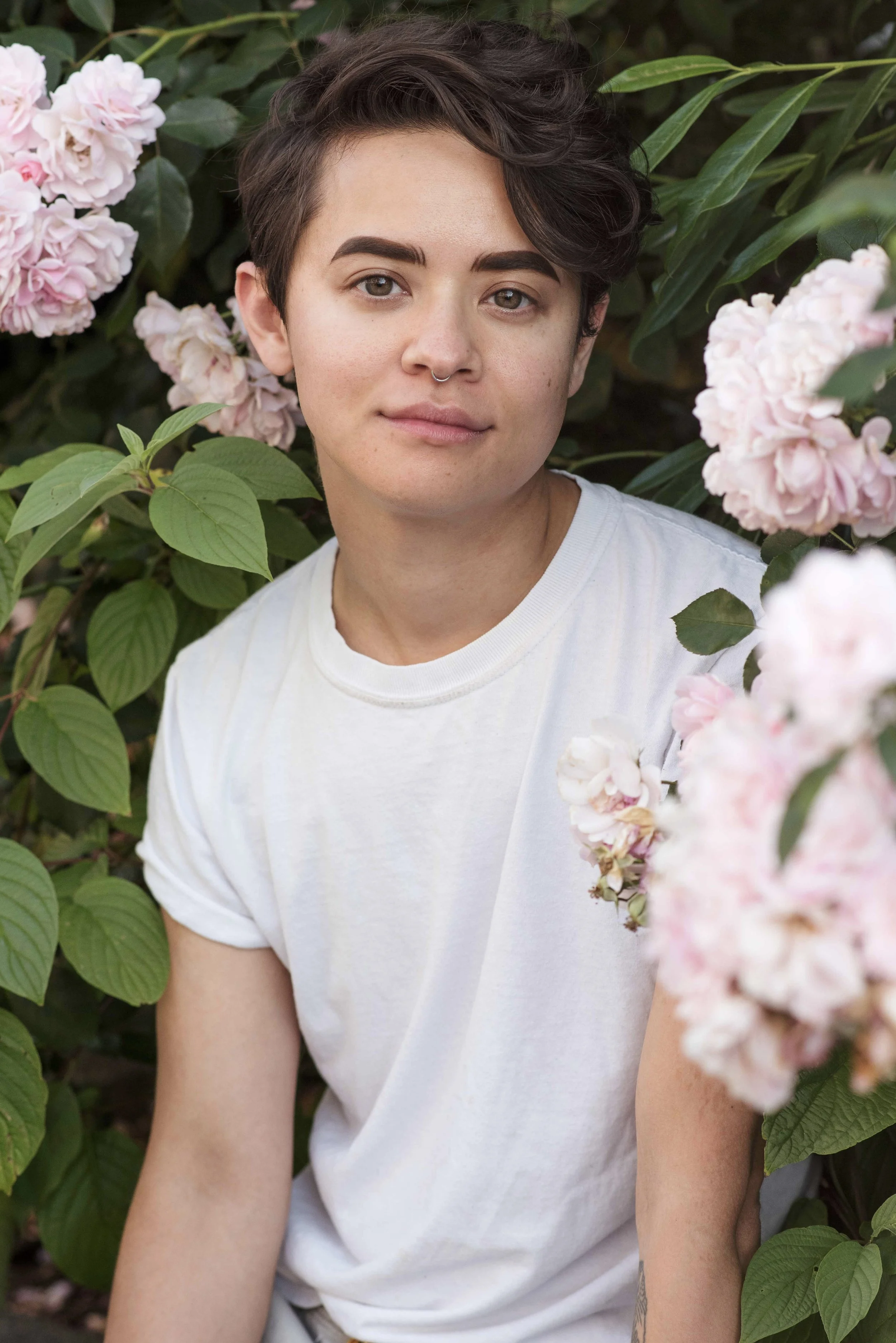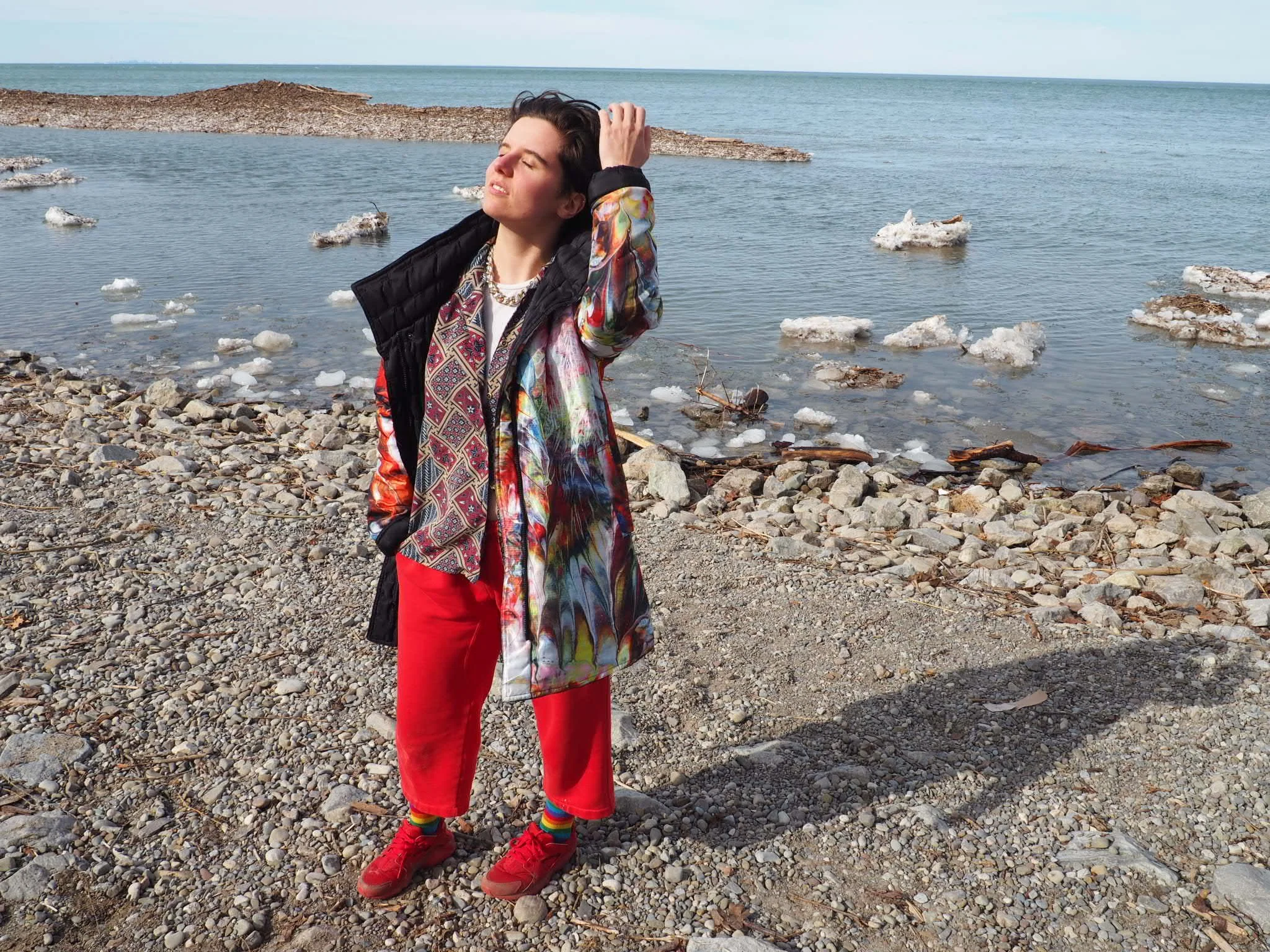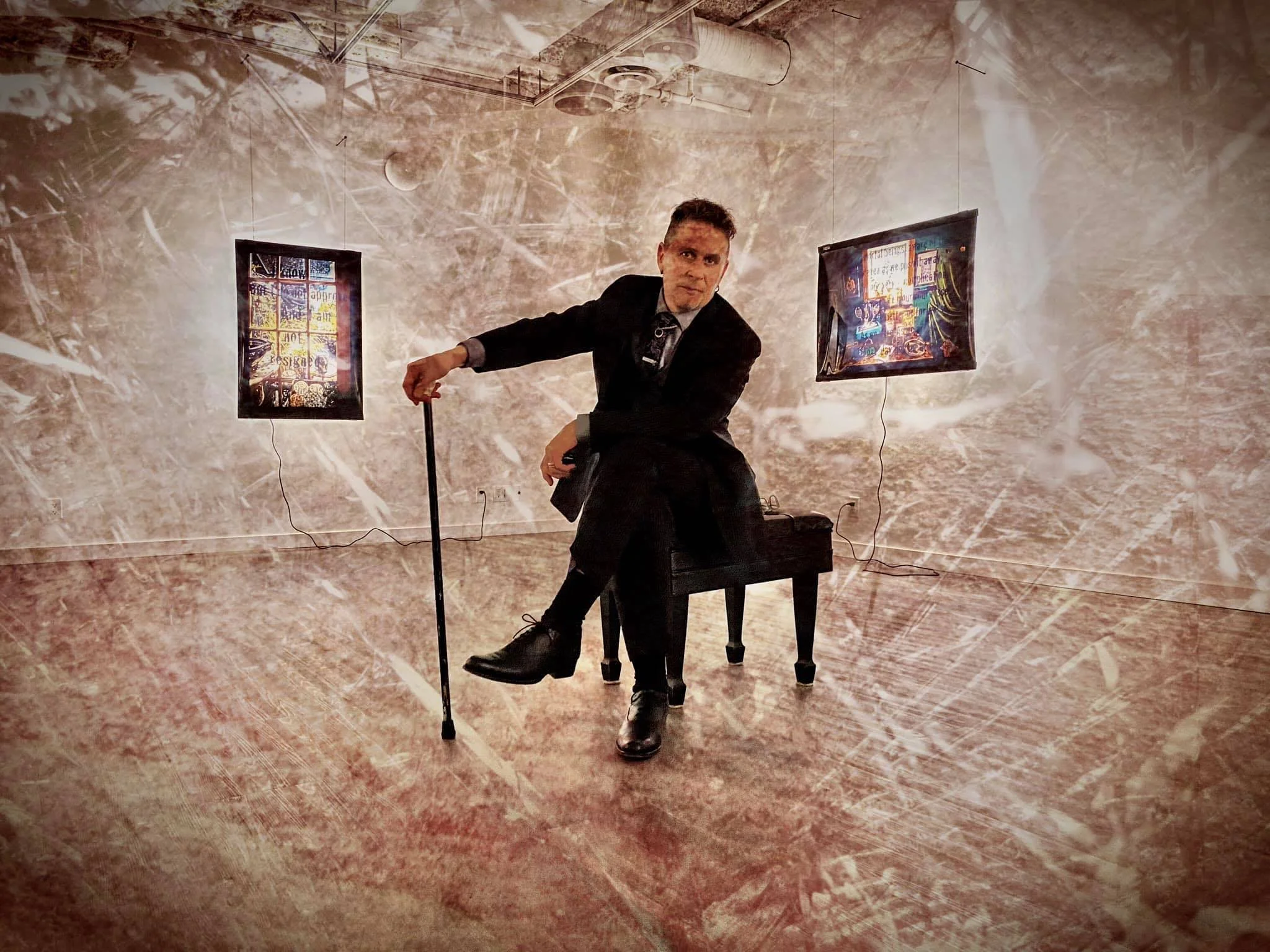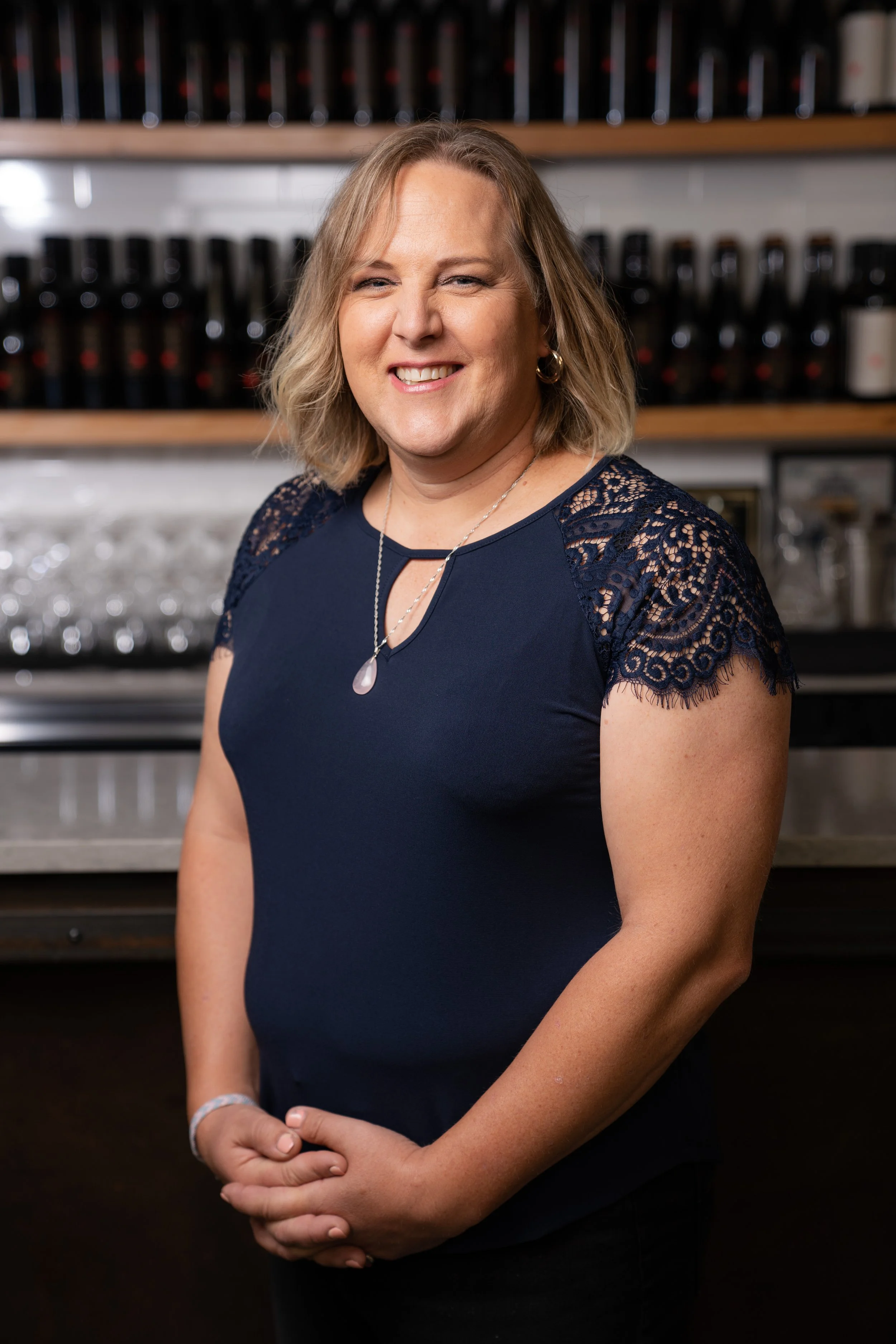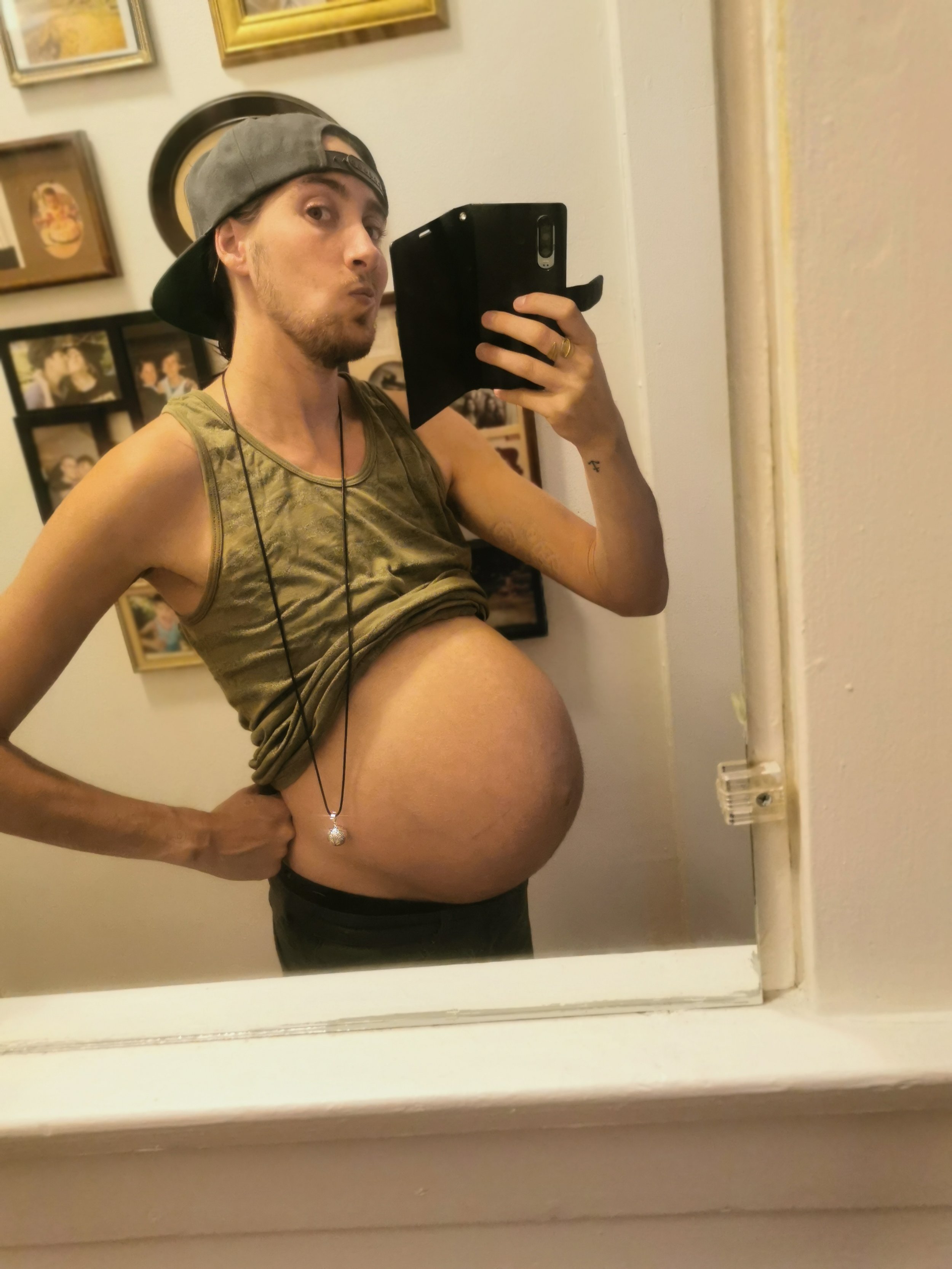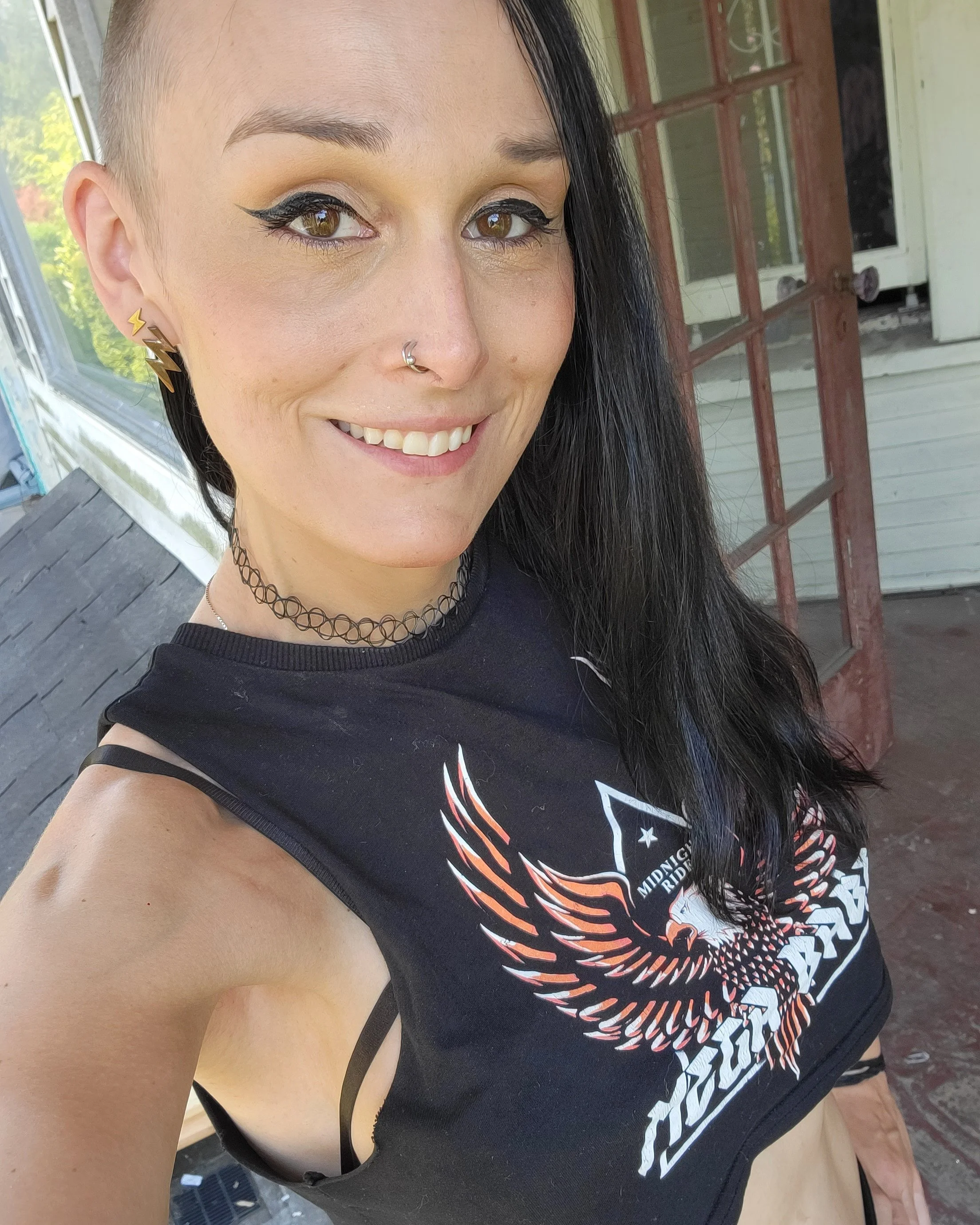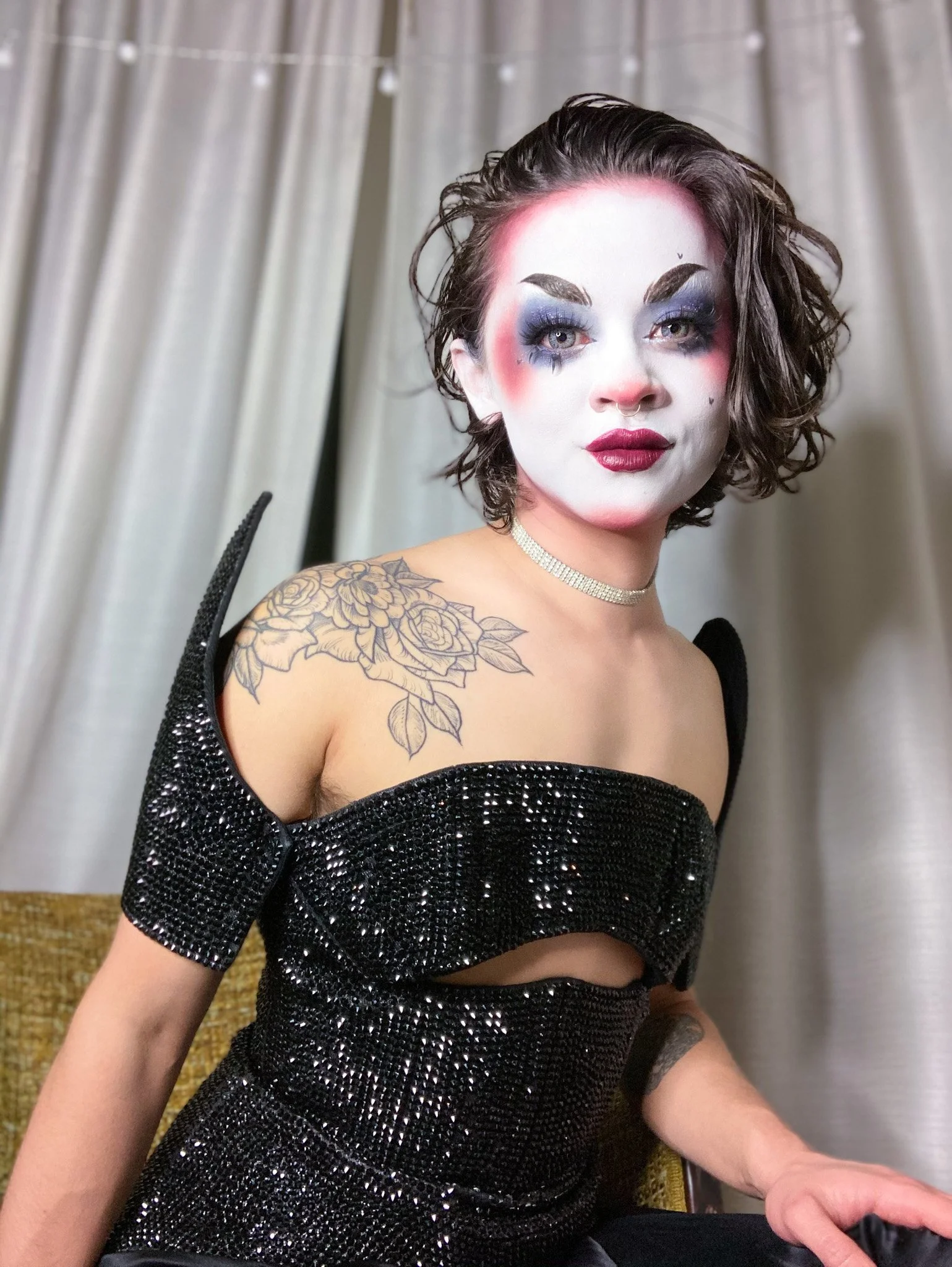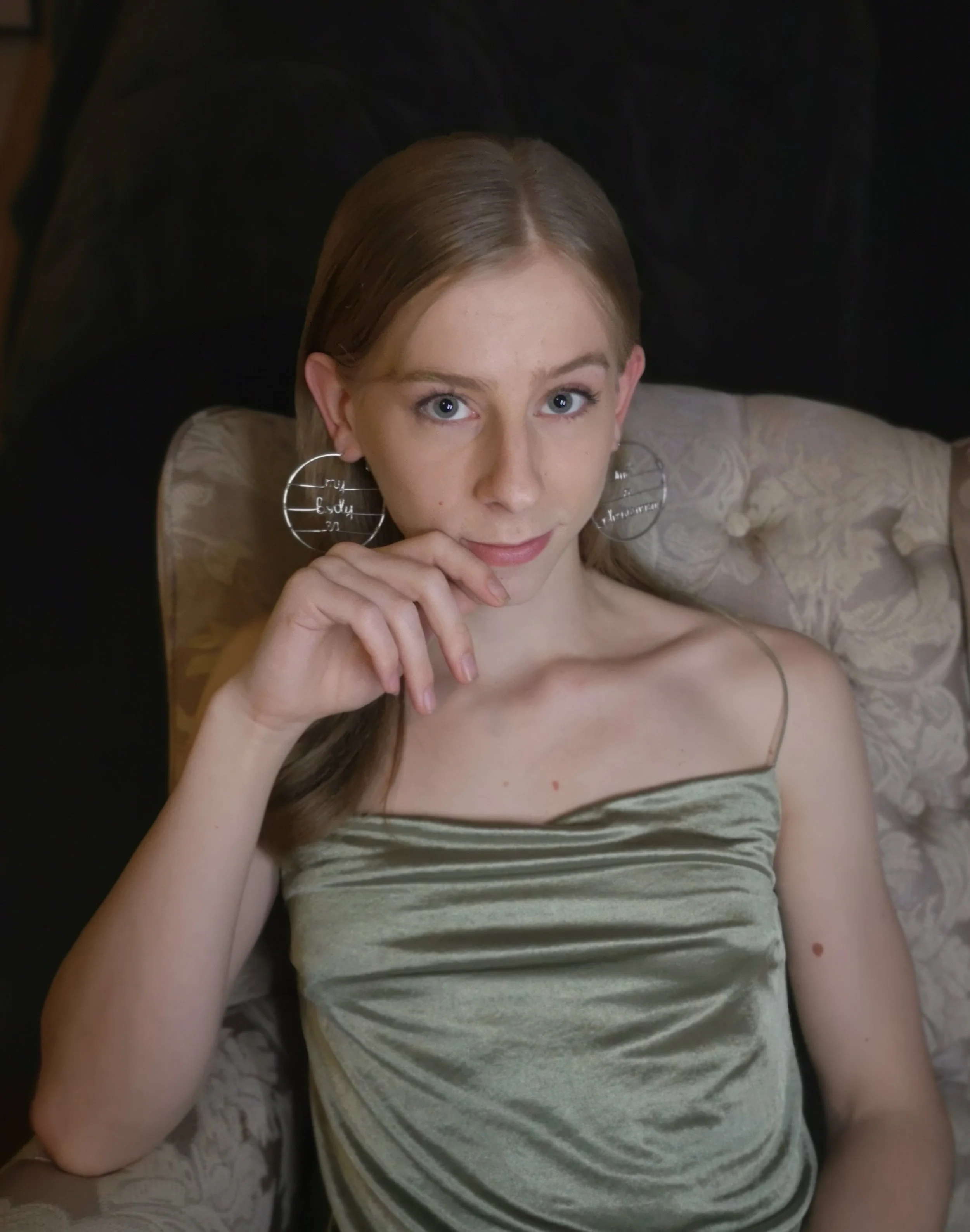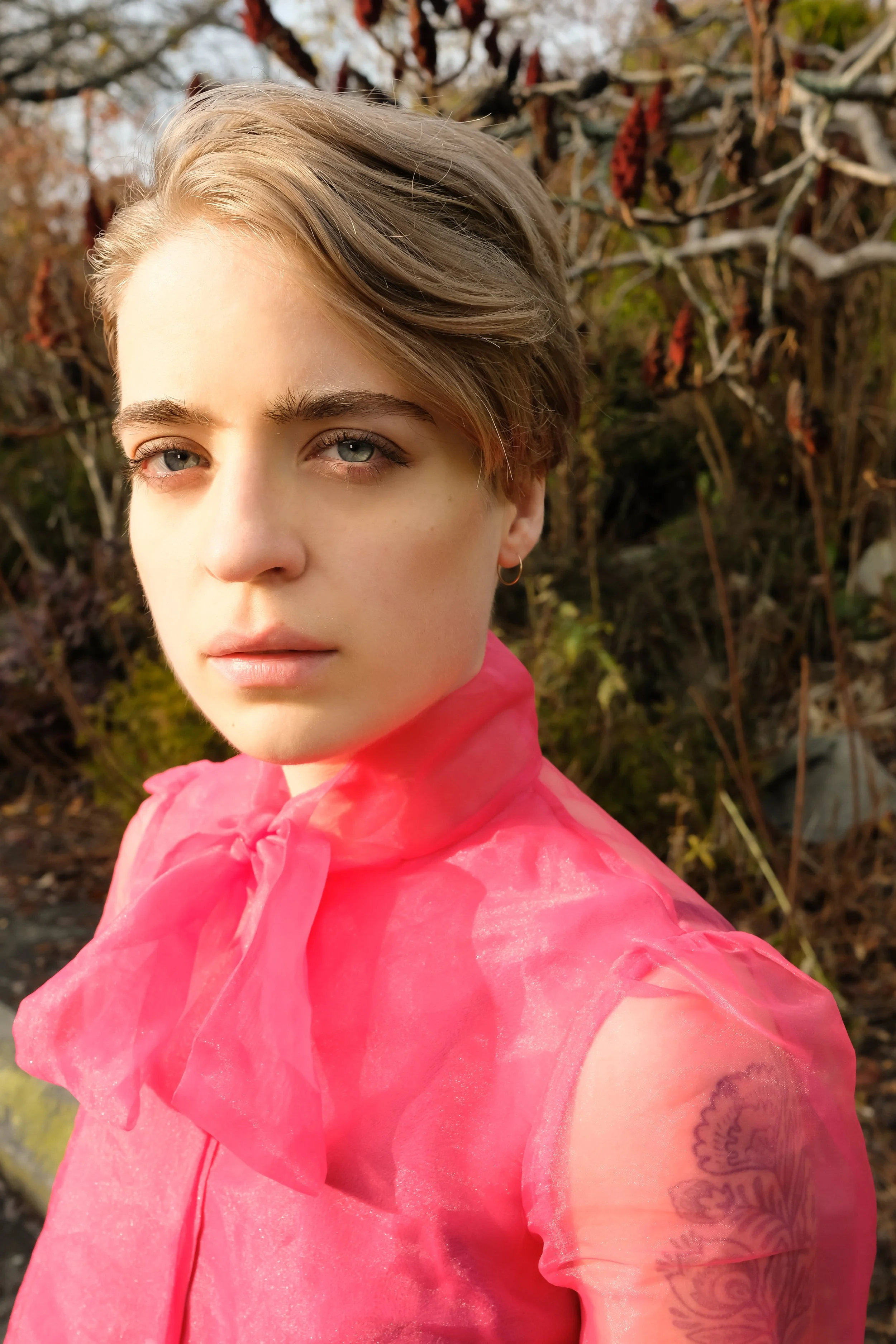International Trans Day of Visibility 2022: Local artists reflect
The March 31 event celebrates transgender and gender nonconforming people while raising awareness of discrimination and injustice
Rae Takei.
HELD ANNUALLY ON March 31, International Trans Day of Visibility honours and highlights trans and gender nonconforming people while raising awareness of the work that needs to be done eliminate discrimination and achieve trans justice.
According to Transgender Expressions Haven, a locally run virtual performance art venue and web-based interactive gallery space for transgender, non-binary, Two-Spirit, and intersex artists and other artists transcending gender, the day celebrates the trans+ community. “Trans+ is short-hand language that includes many different identities within the transgender community such as non-binary, Two-Spirit, Indigiqueer, genderqueer, intersex, and of course transgender people with or without medical care,” says Andy Warner, whose many roles include that of co-founder of Transgender Expressions Haven. The organization notes that being trans does not require a “transition”; not all trans people have access to or want to pursue hormone replacement therapy (HRT) and other forms of gender-affirming care.
Stir connected with some of the trans+ people working within B.C.’s arts and culture community, from theatre to winemaking—by no means a comprehensive list—to get their thoughts on International Trans Day of Visibility. We asked them the following questions: What does International Trans Day of Visibility mean to you? Would you share a moment or a memory where you felt gender euphoria? What would you like to see change in the local arts and culture community regarding visibility and/or representation of trans+ people? We share their responses here, in their own words.
Angelic Goldsky.
Angelic Goldsky
Creative director of Transgender Expressions Haven; poet (they/t[he]m)
[International Trans Day of Visibility] is an honouring to those who are invisibilized: (in certain situations, to their families, to their own self, even), a collective reminder that you are worthy of being celebrated in full spectrum. Your transness is sacred. Even in closed doors, even behind curtains, even behind screens. A day to honour all the people who are misread, mis-identified, mis-recognized and or threatened because of crossing gender boundaries. A day for all people who have not been seen in their excellence, wisdom or truth ever, or most of the time. A day for all the people who don’t want to be trans activists and just want to be.
A day for all people who feel limited by the word trans. For the people that feel they are more than transgender, who trans, cross, dance, abolish, recreate, rediscover, abolish, weave, and expand gender. For all the people who live outside of the binary between cis and trans, to the people whose frames of expression exist outside and beyond of colonial, white, prescription.
A day for all people who do not resist being prescribed and mis-identified. For the people who have not defended their dignity. For the people who have given up the fight. For the people who are too exhausted to publicly call themselves who they know themselves to be.
For the trans people that are told that they aspire to be cis. For the trans people that are told they need to transition to be valid. For the trans people passing to survive. For the trans people where failure is not an option. For the trans people who are constantly boxed back in and even made to question themselves.
For every single person who has been confined by language, washroom stalls, passports, ma’ams and sirs, unseen for who they are, told their god hated them, told their presence was inappropriate, harassed and left behind.
For the people who have had to leave behind their family of origin, their friends, their religions for the safety and protection of their truest spirit.
For all people who have a spark of knowing themselves as different from, more than, or beyond any unchosen identity, name and concept put into their bodies. For those who shine in a colour most cannot name. TDOV is to honour all those who move towards their truth (or are stuck and terrified by it) who revel in the uncharted, unnamed and never seen before on earth - TDOV is a possibility: perhaps for at least one day, for now, this kind of boundless evolution can be visible.
Supporting transgender art is supporting transgender life. I desire more comittment to the vastness of what transgender life, non-binaryness, and freedom from gender-based violence really could be, specifically in art institutions that deem our bodies, talents, poems unprofessional, not family friendly, or out-of-scope.
I would like to see art that is so incredibly trans on the covers of art catalogues, transforming walls, dangerously disturbing the process of valuing work, experiences and ideas. I would like to see trans people in audiences, welcomed by venues, called their correct name, given accessible washrooms, respected in their identities and not terrified. This is the bare minimum. But that's not what I dream of.
I dream of complicating what trans art is, complicating the expansive potential of leaving behind all coercive identity frames - rising together towards spiritual justice that is more vibrant and alive than any false performative signal. I don't need to see more trans flags, I need to see more money given to trans artists, I need to see less focus on legal bureaucratic identity, a creative space where being the fullness of ourselves - the weird, the bad, the strange, the queer, the shiny, the incomplete, the whole, the pulsing, the ugly, the dancing - isn't afraid to whole it all.
I would like to see trans-ing gender binaries as not only neutralized or accepted in arts organizations or councils - but celebrated and revered. Specifically uplifted, even if it is un-understandable upon first glance. I want LGBTQ+ art space, to be uber-queer, and therefore uber-trans, without justification, explanation or distilliation into a coded frame. I want to see our creative power celebrated in full force, vision, and dreamscape. On this timeline and all future timelines.
SD Holman. Image by Paul Wong
SD Holman
Artist; founding artistic director emeritus of the Queer Arts Festival and SUM Gallery (pronouns: “depends who I’m with”)
International Trans Day of Visibility means we have come a long way, baby—and we still have a long way to go.
It's awesome to see concepts of the 3rd sex (sic.— we now use “gender”) being revitalized and remixed after languishing in limbo since the Nazis burned down Magnus Hirschfeld's Institute for Sexual Science and his irreplaceable library in '33. Colonialism, including the residential-schools system, likewise laid waste to the three to six gender recognitions indigenous to this continent, but so many older, traditional ideas of genders beyond the m/f binary are coming to the fore again.
When I read Persimmon Blackbridge‘s use of “Euphoric Genders” as the title for her essay on my work. Some 25 years ago, I did an exhibition, G.l.D. Gender Identity Disorder or… Girls in Drag. One of the pieces in it quotes sociologist Erving Goffman, from the 1979 book Gender Advertisements, which ends: “One might just as well say there is no gender identity. There is only a schedule for the portrayal of gender.” Artist Persimmon Blackbridge wrote an essay about the show called “Euphoric Genders”. As Persimmon put it: "Let’s tell the truth here: there’s no peace arch at these borderlines. In some places the line between dyke and trans is fenced with razor wire, patrolled by people taking potshots at anyone who crosses. But Shaira [SD] is not drawing lines in the sand, embracing some and shutting others out. She’s documenting a place, a moment, a particular piece of community.... If you blow up a photo enough, lines become vast fuzzy fields. When you get up close, this small slice of the gender continuum turns out to be a large and rowdy collection of people with diverse gender strategies."
I would like to see more folks that don't fit into the binary of male and female represented, and more different kinds of folks beyond the gender binary. We're presented with a secondary gender binary of cis versus trans, but gender is so much more plural than that kind of linearity implies; it’s more like a constellation. I'd particularly like to see more representation of butch women and not just because I'm a butch.
I’m very pleased to see that there has been somewhat of an acknowledgement and even acceptance—in some places, for some people, at some times, as long as you don’t step outside of major cities on this continent, anyway. Even National Geographic did a great beautiful article with a spectrum of genders on their cover a few years back, but you know who was missing? A butch—a butch woman, still to this day maligned and misunderstood. I’d like to see some progress there in the mainstream.
Before I started the Queer Arts Festival and I was still being an actor, I had a pet project: I wanted to create a theatre company that cast role by how right the actor was for the character and had nothing to do with the gender of the character or actor, and I don’t mean pants roles or cross-casting—just if you were the best person for the character regardless of what gender you were, that is how you would be cast. I would love to see a large production company doing that—well, really all production companies doing that.
Darrien McWatters.
Darrien “Dee” McWatters
Operations Manager, TIME Family of Wines Ltd (she/hers)
To me, International Trans Day of Visibility is about being visible as a trans woman. Many trans persons do not necessarily feel too comfortable explaining themselves or protecting their past. They may feel in danger still. I have always been a very open person and very extroverted. I feel this is my opportunity to use my voice and visibility as a more open, public person, to share the experiences of what coming out as a transwoman is, in my own story. I am happy to be open and explain how it feels to me and have open debate and conversation with those who question the presence of different gender other than female and male.
There are so many times where I have felt the true euphoria of being properly gendered. Sometimes they were very simple things, while others were huge. I recall about 4 years ago before fully socially transitioning and before too much physical transition, my first “girls’ weekend” with my best friend and her sister. The complete acceptance of my womanhood by other cisgender females was so affirming that I was on the correct path. Several months later, the decision to transition from expressing as gender fluid to completely female, affirmed within myself that this was the way I was supposed to feel and express myself. In 2019, approximately six weeks after I started on estrogen, the slight pain of the “breast buds” growing and the emotional roller coaster that ensued as things within in my body began to change, was surprising, not the most comfortable, but all the same a euphoric feeling of being the true me. My first official bra fitting, amazing feeling and of course the gender affirming bottom surgery. Of course, there are many instances, difficult ones, along the way of dysphoria as well. However, these all stopped the moment I had my GRS (gender reassignment surgery).
[Regarding changes in the local arts and culture community regarding visibility and/or representation of trans+ people]: just that we are all persons; however we may express and identify is who we are.
Gavin Kade Somers.
Gavin Kade Somers
Education director, Out On Screen; Vancouver School Board Candidate 2022 elections with OneCity Vancouver; artist/musician; new parent
International Trans Day of Visibility is time for trans folks to be seen and recognized, not just for the hardships imposed on us by society and how we “overcome them” but for all the ways which we exist outside social norms and find ways to embrace ourselves, celebrate ourselves, lift eachother up and imagine ways of being that growing up, many of us were taught over and over again were “impossible”. However, Trans Day of Visibility isn't just the positive—where there is visibility and increased awareness, there is also increased fear and hate from people who aren't ready to accept the reality of us.
The first [moment or memory where I felt gender euphoria] is pretty typical—the feeling of waking up from top surgery. I was taken home wearing a button down blue plaid shirt. I remember seeing my outline in the mirror for the first time; flat chest in a button down shirt. The second: wearing a long black skirt and white tank top (post top surgery/healing). Enjoying the swish of the skirt in the wind as I longboarded down a hill to the park. The third: being pregnant. Almost 10 years after starting HRT and five years after having top surgery, I made the choice to become a parent through pregnancy. Being in my gender (facial hair, flat chest, pregnant belly) and being outside, on the ocean, in my swim trunks, jumping from my paddleboard into the water and just floating...
I would love to see visibility lead to increased protections and celebration of trans ways of being and knowing. Transness can challenge binary ways of thinking and existing, and with all the challenges we face in the world (environmental, social, etc.) I think it's really important to ask how we can centre these ways of thinking and being as we create art. The arts have always been a place for imagining, and I think we need to critically ask how art can influence how we move forward as a collective with care.
Sabrina “Bria” Symington
Artist (she/her)
For me, Trans Day of Visibility is about being visible to other trans people. When we see another person like ourselves being happy in the world, living their life as their true, authentic self, that shows us that happiness is possible for ourselves as well. Being visible as a trans person can be really scary, even dangerous, but I know I only had the courage to transition because other trans people showed me that it was possible first.
I get to feel gender euphoria every single night before I fall asleep in bed. As I close my eyes and drift away, it's just me and the sensation of existing in my own body, and it just feels... right. I feel this supreme gratitude and happiness at being alive in a way I never once did in the 27 years before I transitioned.
[Regarding changes in the local arts and culture community regarding visibility and/or representation of trans+ people]: More incidentally trans characters in stories, please! Trans visibility is important, but most trans people I know want to be valued and appreciated for our complete selves. We don't just want to be given opportunities to make art about being trans, and we don't only want to see trans characters whose primary character trait is that they're trans, or, worse still, that they are suffering because they are trans. There is surely a lot more work to be done to educate the public about the reality of trans lives, and art specifically about the trans experience is still very important. But trans people are just that: people. We have wide-ranging interests and skills, and the really beautiful thing about being trans is that it gives you a different way of looking at the world that isn't only limited to gender. Many trans people in the closet try to fill the void left in themselves from living as the wrong gender by pushing themselves to excel in life, and most trans people I know are truly incredible individuals with a shocking amount of knowledge and experience to offer. So, really, society is missing out if it only values us for talking about gender.
Rae Takei, aka Rose Butch.
Rae Takei, aka Rose Butch
Drag performer and multidisciplinary artist (they/them)
Trans Day of Visibility was created out of necessity to be a celebratory day of observance for the trans and gender-variant community, in a time when we only had Trans Day of Remembrance—a highly important but somber day. So much of how the trans experience is portrayed can centre around our suffering, and while it is necessary to recognize the struggles of the trans community, I feel that it's equally (if not more) important to highlight the joy and the successes of our community. Many of our trans ancestors—Sylvia Rivera, Marsha P Johnson, and all the stories that we don't hear—didn't get their roses in their lifetimes, so we need to celebrate those that are around us while they're still with us.
The visibility aspect is important to highlight the diversity of our experiences—there is no singular way to be trans or gender variant, and representation of various expressions and experiences can mean so much! It can help to change minds and provide hope to folks who might be questioning or closeted.
Almost every time I step on stage in drag is a huge moment of gender euphoria. My drag persona has been a big part in discovering who I am, especially in relation to gender. Being Rose Butch has given me a safe space to play and explore that I don't think I would have had otherwise. One of my favourite memories was the first time that I performed in a pair of pasties after my top surgery in 2018. I'd had a rough recovery post-surgery, and that moment on stage felt so powerful.
I'd love to see theatre schools become a place where trans people can feel safe and comfortable getting their training in any capacity, whether it's on or off stage—I think a big reason why we don't see enough trans representation in theatre is because the institutions can be so hostile that some folks stay in the closet, or give up entirely.
More leaders and educators must go through trans competency training at the very least, as well as take it upon themselves to look at what they can be doing to make their organizations more friendly and accessible to trans and gender-variant people. It's tough work to do, but would be well worth it to nurture and bring forward so many voices and viewpoints.
Andy Warner.
Andy Warner
Emerging troublemaker from the North Shore who spends most days on Sḵwx̱wú7mesh and səl̓ilw̓ətaʔɬ lands, living near the Sḵwx̱wú7mesh community of Eslha7án; co-founder of the Transgender Expressions Haven; vice president of the Fund for the Arts on the North Shore; social engagement manager at North Van Arts.
International Trans Day of Visibility is a day for conversation and action, among cisgender people. We need you to talk with your friends about the violence we face and what you specifically are going to do about it. I’ll be frank: don’t tell us how much your heart hurts over Texas—take action where you live. Vancouver has some of the biggest anti-trans hate groups in Canada regularly taking action and talking about it. Again, ask yourself what actions you have taken to help. Making small talk over our trauma is not going to stop transphobia. Try telling your BC MLA that we should fund more support for trans people. I imagine they’ll respond by saying “we already fund trans people’s surgeries, hormones, and care”. Then try asking a trans person if that’s true. Compare responses.
Among trans folks, this day can be a public celebration, it can be a grieving, a day to call out transphobia or not. It’s a day for us to exist and breathe as best we can. Honestly, some of us forget about days like this because we are still trying to move through trauma and survive as transgender people.
One of the moments where I felt gender euphoria (where I felt visible, supported, and loved) was during a performance art piece at the Vogue Theatre. The Tiny Tricycle Poets (a group I’m in) were opening for Shane Koyczan in 2019. In a poem (called “That’s What She Said”) we told jokes about jokes about women. We decided to play with the audience’s perception of me as a man and take it one step further with a joke about trans women. So I wore a suit and presented a clown version of my masculinity. I had short hair back then and we know how cisgender people feel about short hair. During the end of the poem I was staged between the other two Tricycle Poets as they said “she is in the center of the room now. All eyes on her.” The audience’s confusion was breathtaking, because so many of them couldn’t understand how someone wearing a suit could be a woman. I know it sounds a lot more like a memory of dysphoria. But for folks in the room who know the difference between a pantsuit and a suit (surprise, there is no difference)… I felt euphoric and seen for who I am regardless of the costume I was in. I think gender euphoria is transness in the absence of costume, makeup, behaviour, or language. I’ve spent 15 years in the performing arts – loving myself without everything on was and is my greatest challenge. It’s not the same for everyone, but I would hope you know that’s obvious by now.
What I’d like to see change in the arts and culture community is too long of a list. But let’s start with the organizations that don’t have any trans people on staff. If this is you (and it probably is) then your organization has a lot more work to do than sharing this article around the office. I do have some conversation starters for cisgender people to ask each other today: How many trans people are on staff? How many trans people on staff have health insurance? Does your health insurance plan cover trans care? Do you know what I mean when I say trans care?
Anais West. Photo by Kimberly Ho
Anais West
Artistic producer of the frank theatre company; freelance actor and writer (they/he/she)
My partner had this friend who, during Bisexual Awareness Week, went up to her and said "Hey, I'm aware of you." He was joking, but to me, that moment encompassed all the absurdity of "visibility days." They can often feel performative and bizarre. But at the same time, I think there's a critical lack of trans representation in all media, and public visibility does lead to political and social change. Trans rights are under threat in so-called America and many other parts of the world. I think the best way to celebrate is to honour trans activists and ancestors, and to do something with a tangible effect—donate to an organization, buy your trans friend dinner, make a commitment to support a trans artist.
[Regarding a moment or a memory of gender euphoria]: All I can share is an accumulation of small things: gay novels; platonic bromances; the bristle of shaved hair at the nape of my neck; a low-cut, billowy silk shirt that reveals my sternum; my partner calling me 'sir' or 'prince' when she teases me.
As a writer, I would love to see companies that aren't queer-mandated program trans plays. I get the impression that the artistic directors of mainstream companies still see trans stories as niche, alternative or political. All programming is political—cis stories, white stories, straight stories: these are political, too. They uphold a politic of Eurocentrism, cisnormativity, and heterosexuality. As an actor, I would love it if cisgender directors saw more non-binary people for male or masculine roles. It sometimes feels like directors see me as "woman lite"—an edgy girl who wants to disrupt social conventions. And that's not what being genderfluid is. For many non-binary performers, myself included, our assigned gender isn't a larger part of our experience than the other genders we embody. If someone asked me to audition for a cis male role, I would be ecstatic.


